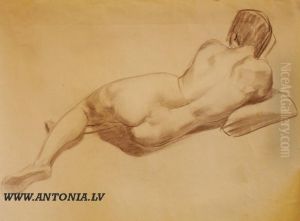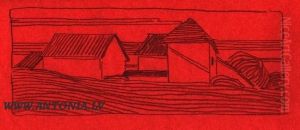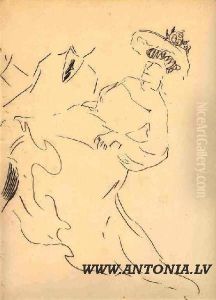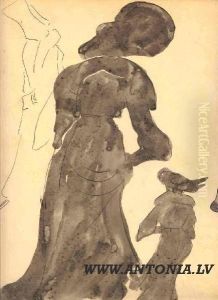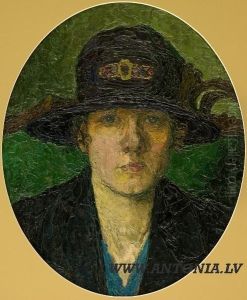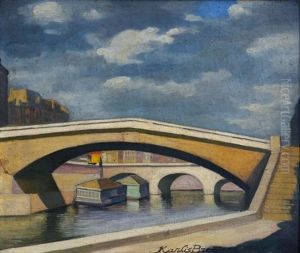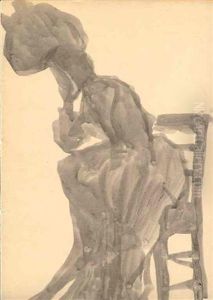Karlis Brencens Paintings
Karlis Brencens was a notable Latvian poet, writer, and translator, whose work left a significant mark on the literary landscape of Latvia. Born on June 16, 1912, in the township of Ēdole, which is part of the historical region of Courland in Latvia, Brencens grew up during a period of burgeoning national identity and cultural renaissance in the country. His literary journey began in the interwar period, a time when Latvia experienced its first phase of independence, and this context deeply influenced his writings and ideological leanings.
Brencens' education and early career were marked by the complexities of the era, navigating through the cultural shifts and political upheavals of the time, including the impact of World War II and the subsequent Soviet occupation of Latvia. Despite these challenges, he managed to carve out a space for himself in the Latvian literary scene, contributing both original works and translations that broadened the scope of Latvian literature.
Throughout his career, Brencens was renowned for his poetry, which often explored themes of national identity, love, and nature, reflecting the deep connection he felt to the Latvian landscape and its cultural heritage. His style combined classical elements with modernist trends, making his work accessible yet profound, and deeply resonant with the Latvian people. In addition to his poetry, Brencens also made significant contributions as a translator, bringing the works of international writers and poets into the Latvian language, thereby enriching the cultural dialogue within Latvia.
Brencens' contributions were not limited to his literary output. He was also an active participant in the cultural life of Latvia, involving himself in various literary societies and contributing to cultural journals and publications. His work during the Soviet era was particularly notable, as he navigated the restrictions placed on creative expression, managing to maintain a sense of national identity and continuity in his work.
Karlis Brencens passed away on October 30, 1986, but his legacy endures. He is remembered as a key figure in Latvian literature, whose works continue to inspire and resonate with readers. His ability to capture the essence of the Latvian spirit, combined with his contributions to the preservation and development of the Latvian language and literature, ensure his place in the pantheon of great Latvian writers.

